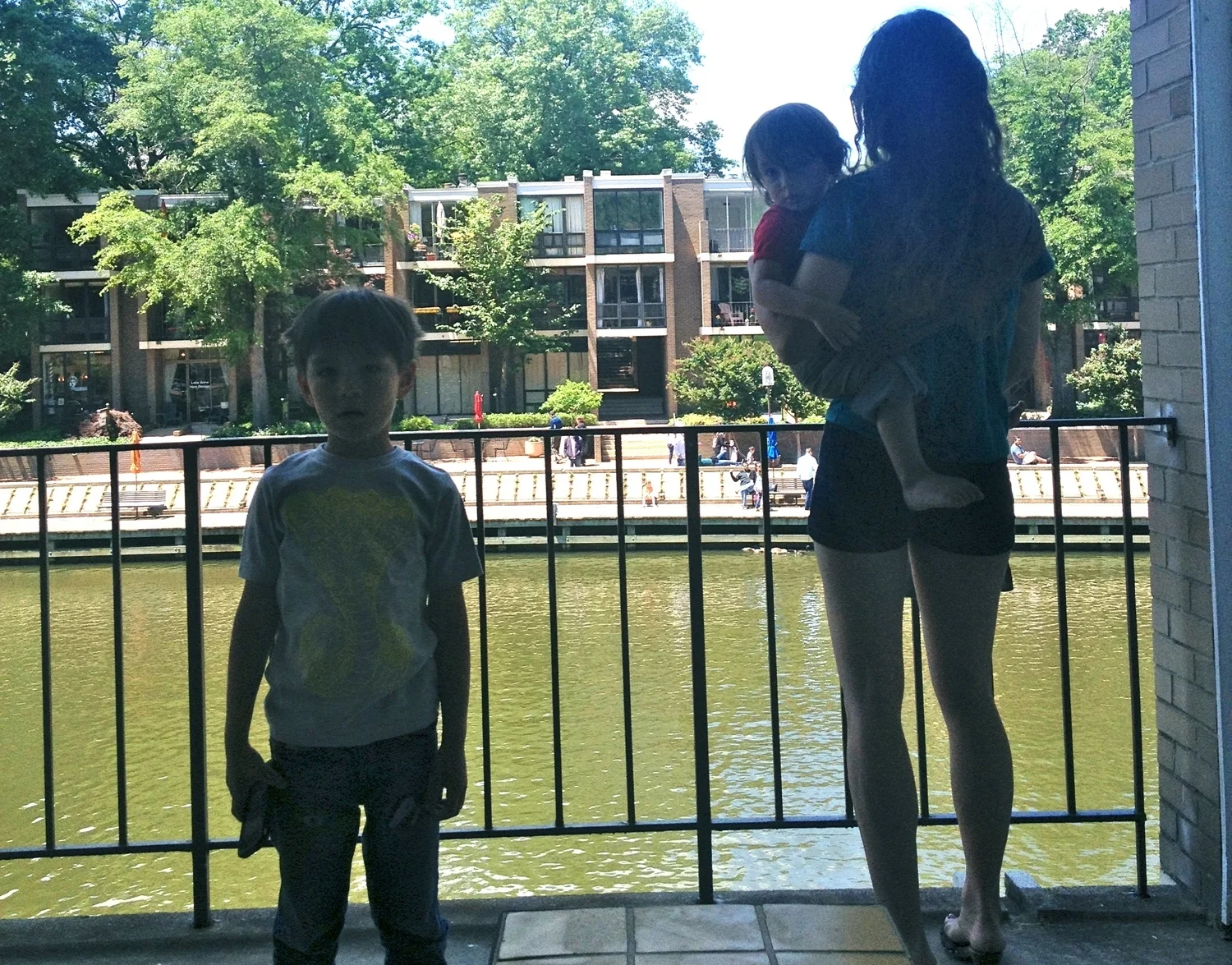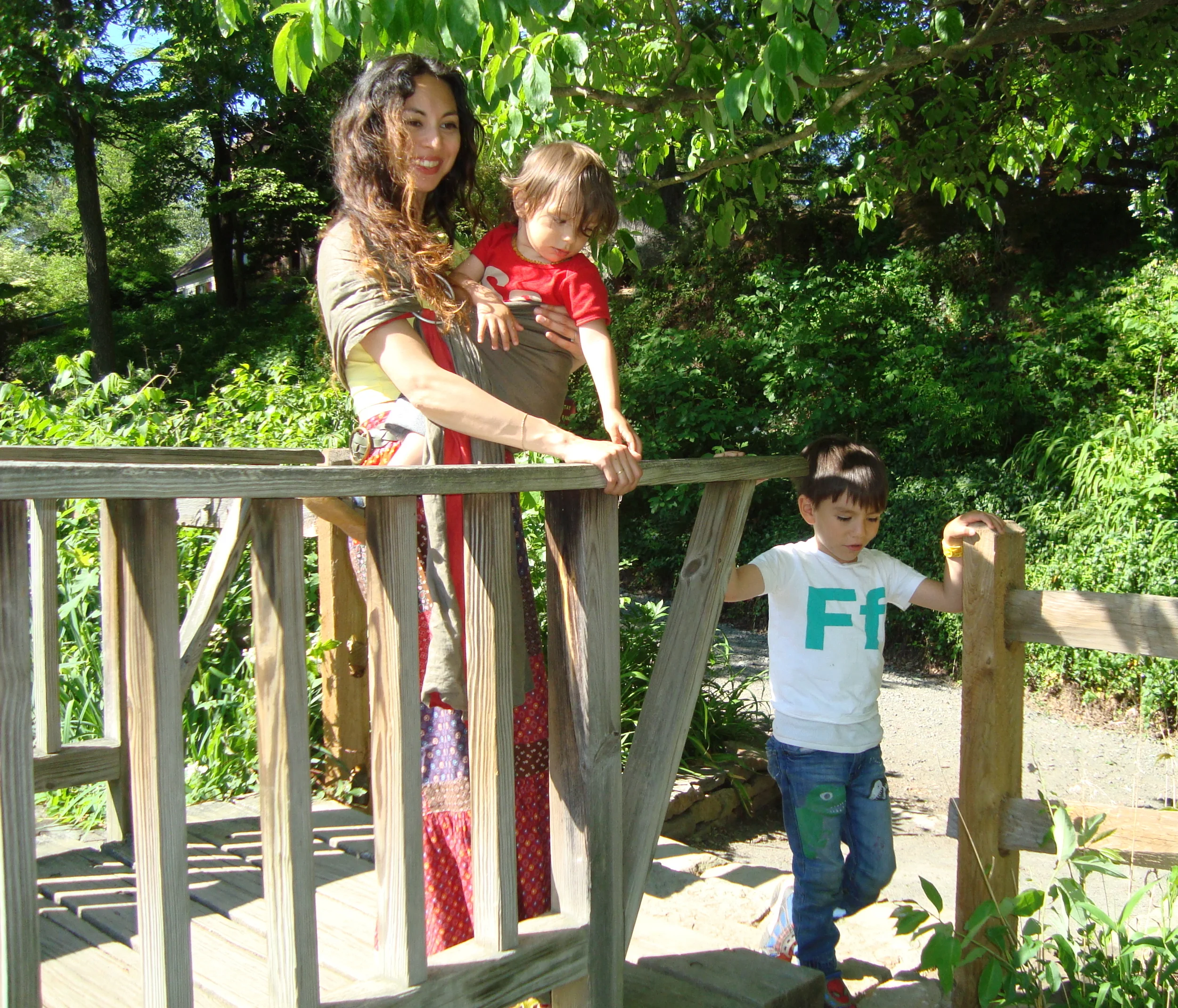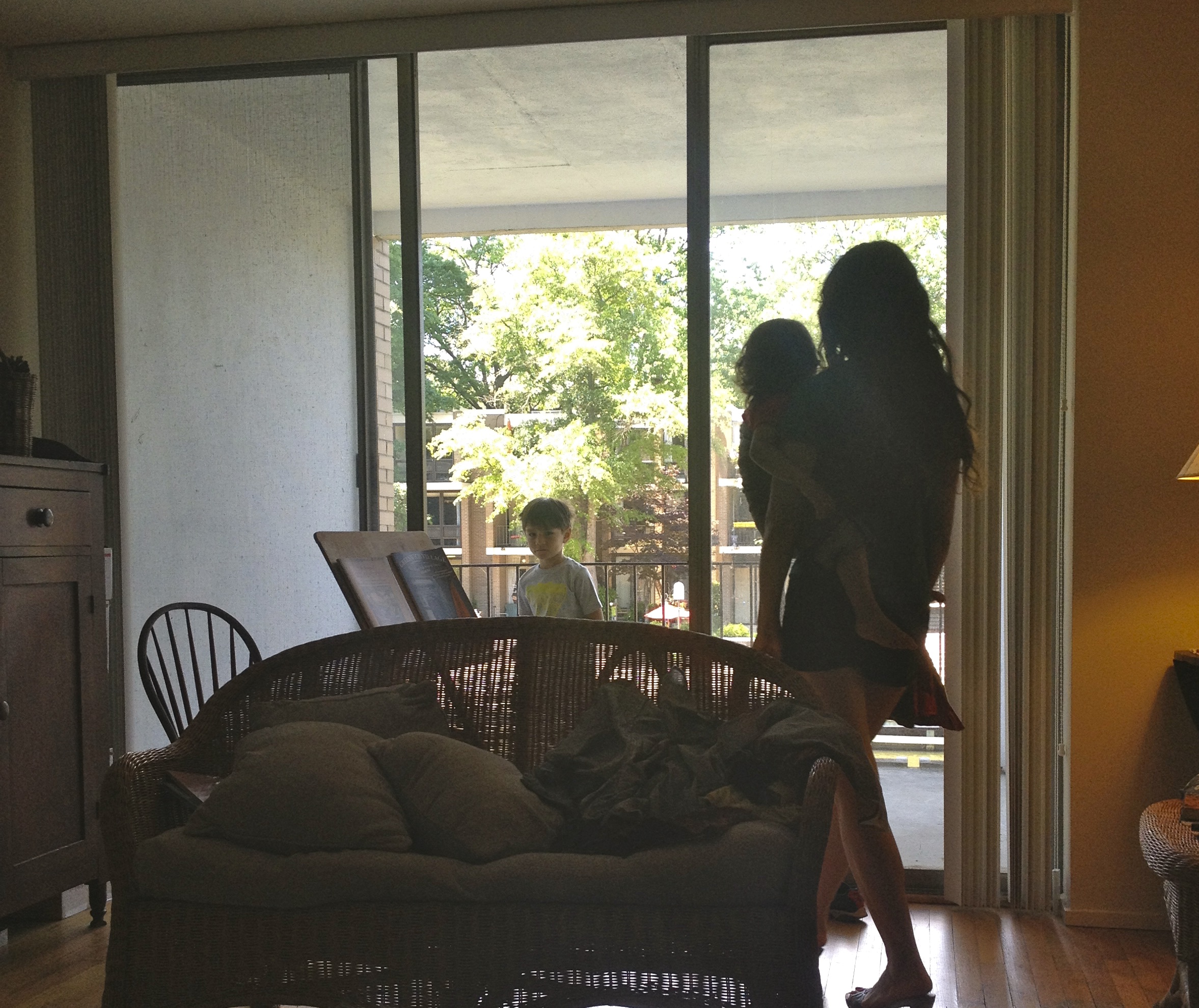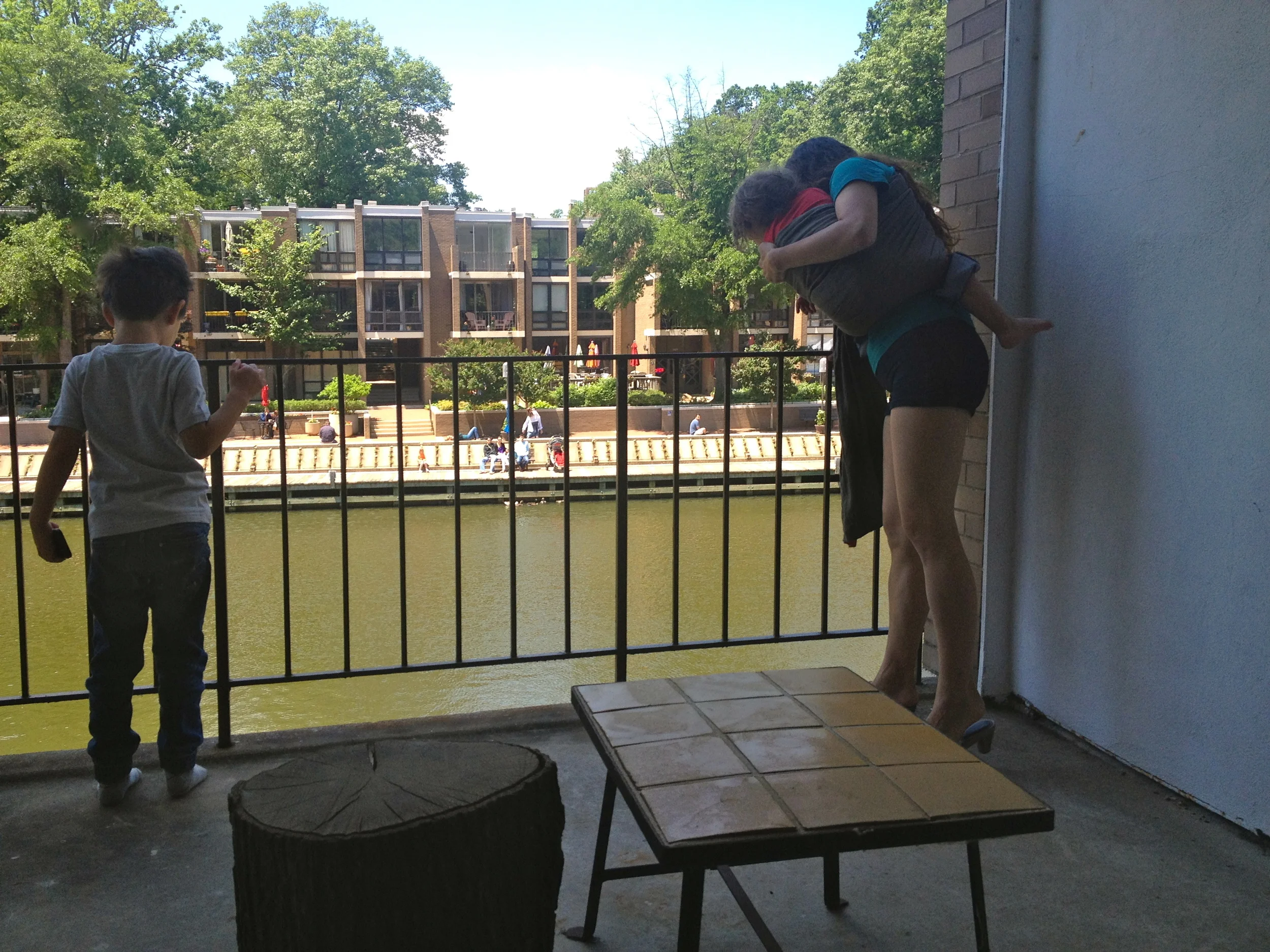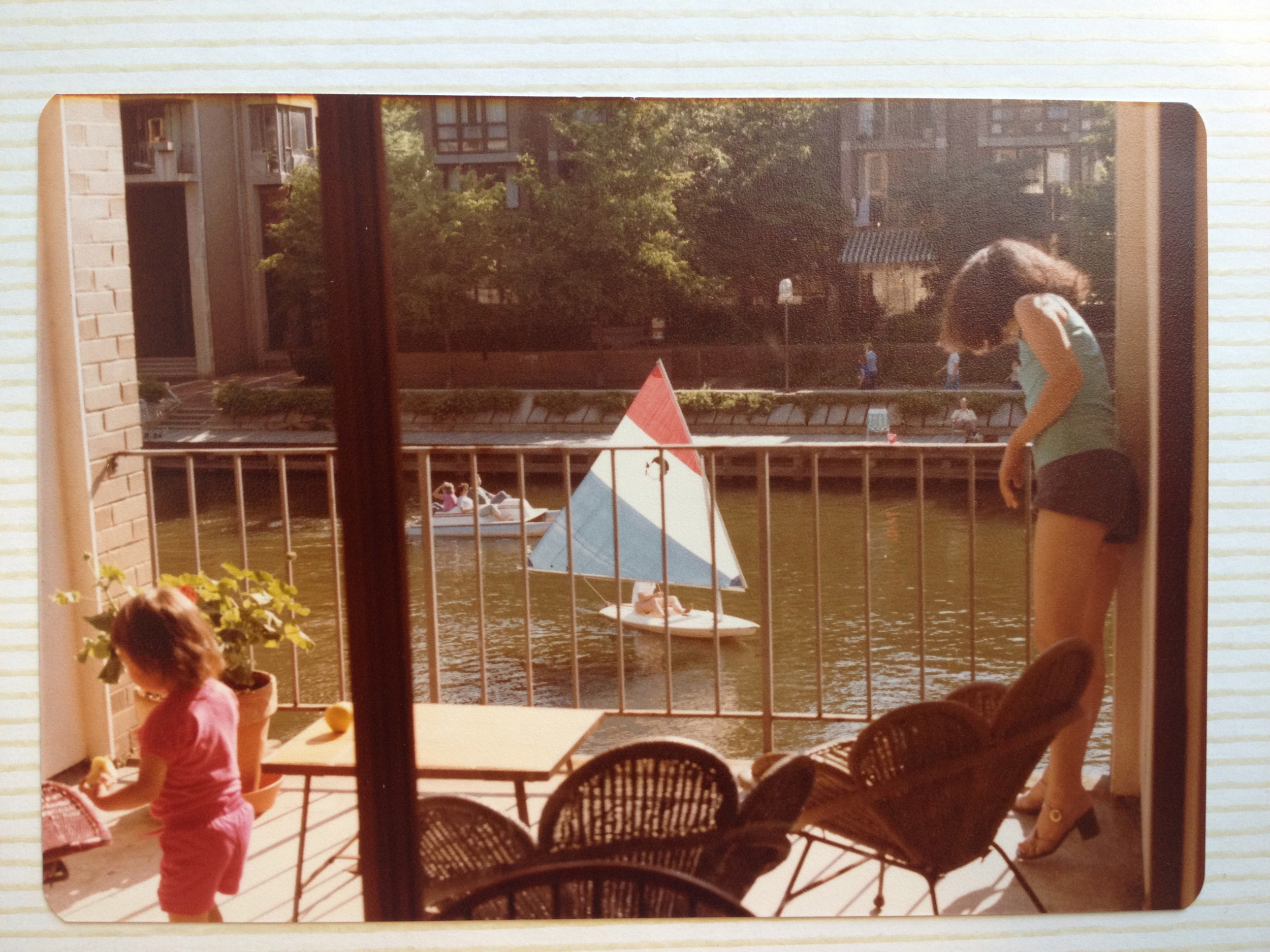MEMORY
Being an only child is strange. Of course, childhood in general is strange, though it usually doesn't seem so at the time. But there's a special strangeness to only-childhood. You rattle around. You have no fixed frame of reference, no one to collaborate with on the interpretation of your existence. You are the only one.
Memory changes. Time turns the kaleidoscope; pieces rearrange themselves; the view shifts gently while you're looking away. Right now, my memories of my childhood in suburban Northern Virginia - a place to which neither of my parents had any social, familial, or ancestral connection - seem delineated by solitude. It's not that I felt lonely, but rather that I was alone. In my home, I shared no spaces, I shared no people, and I shared no things. I did not agree, disagree, or compromise. My existence was not grouped with anyone else's; aside from my parents, I was responsible for no one, and no one was responsible for me.
A memory. I was in elementary school. I was sleeping over at my friend CB's house, and we stayed up late watching television in the den with CB's big sister A, who was three or four years older than we were. A fell asleep on the sofa, and before CB and I went upstairs to bed, CB gently pulled a blanket over her sister's sleeping body. I was completely arrested: CB's act struck me with the force of a slap. CB literally never spoke positively of her sister, and at least half of the interactions that I had ever witnessed between them were argumentative, often to the point of tears. I was shocked beyond all belief that she would behave so affectionately, so tenderly to the person that I thought of as her enemy - and it wasn't even especially cold in the house! The gesture seemed, first of all, crazily grown-up, and second of all, like something that would happen in a storybook, or a romance, or a game of make-believe. It related to nothing in my personal experience, nothing at all.
Another memory. I had just started high school, and I was visiting my new friend E's house for the first time. Her little sister was over ten years younger than we were, still in preschool, still in that stage of childhood where you are not quite talking or moving like a regular human being. She said some babble-y thing or another to E, and E responded to her cheerfully, calling her "honey." My attention was riveted by that one endearment, and I thought about it for days. It seemed crazy that E actually lived with a person who she called "honey." I had never called anyone "honey" in my entire life. Like what I had seen with CB and E, it spoke to me of something completely outside of my sphere: a fully-formed, mutual, peer-to-peer emotional connection of a sort that could not be had with a parent, or really with any adult at all.
I don't mean to say that there's anything wrong with being an only child, and I certainly don't mean to suggest that my parents impoverished my experience by not having more children. This is not about "happy childhood" versus "unhappy childhood," and even if it were, I'm not such a caveman as to think that number of siblings is the single all-important determinant of the quality of one's early experience. Also, I know that nothing is universal: similar metrics, so to speak (like having zero siblings, or one, or seven), will produce different experiences for different people. I am sure that there are plenty of only children whose emotional memories are entirely unlike mine, and plenty of one-of-fives whose emotional memories are surprisingly similar.
That said, I'm glad that my children have each other. Each is the third leg of the other's stool; they can think and speak not only of "my mother" and "my father," but also of "my brother." Their "us" could mean all four of us together, or it could mean just them. They are on their own team, together. Not for them the forced inarticulacy of onlyhood: each can speak the other's experience. I can't help but think that, all other things being equal (which of course they never are), this is the better way to grow up.
My parents still live in Reston, Virginia, on Chimney House Road, in the house in which I grew up. When we visit, I watch my children move through the same spaces that I did as a child. They play, eat, sleep, bathe, and pee exactly where I did, and I take them to the same pools, the same zoos, the same playgrounds and parks. I watch their memories forming amidst the echoes of my own. I know that no matter how else their childhood memories may end up diverging from or cleaving to mine, at least one thing will be completely different: their memories will be populated by each other. I can't help but see that difference as a gift, and I can't help but feel proud that I'm the one who bestowed it.

